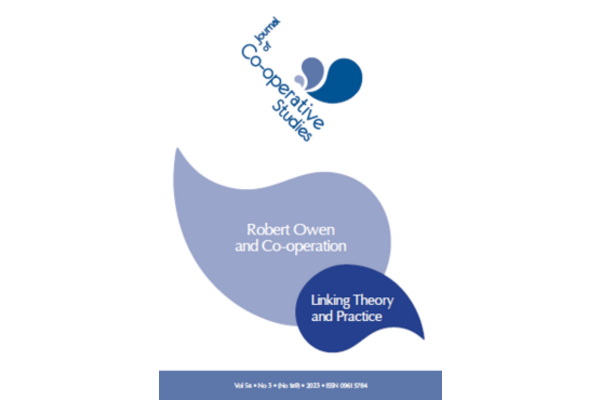This special issue of the Journal of Co-operative Studies reflects on the state of global scholarship and current research on Robert Owen’s ideas about, and his influence over, co-operation and the co‑operative movement.
Robert Owen (born 1771, died 1858) has been commonly regarded as the “father” of the
co‑operative movement in Britain and as the inspiration for co-operative ventures worldwide. In his essay in this issue, Gregory Claeys explores Owen’s legacy as it stands more than 250 years after his birth. Yet, as Mitch Diamantopoulos explains in his essay, the direction taken by the co-operative movement was not automatically aligned with Owen’s own thoughts or efforts in this domain.
Scholarship on Owen and co-operation enjoys a long, distinguished history. Sidney Pollard, whose scholarship is traced and analysed in depth in Christopher A. Olewicz’s contribution, wrote on the transition in the movement and, as Tom Woodin explains in his essay, Owen inhabited a central role in the co‑operative movement’s understanding of its own history.
After the early 1970s, work on Owen shifted away from the focus on co-operation to embrace a plethora of topics on which Owen wrote and about which his various categories of followers enthused. In their contributions, Patrick Doyle and Victoria W. Wolcott show how Owen’s inspiration connected to land reform movements in Ireland on the one hand, and to on‑going efforts made by Black American Owenites to establish both their own economic freedom of manoeuvre and their civil rights on the other hand. Furthermore, Akira Kurimoto and Tsuyoshi Yuki, in their different ways, explore Owen’s remarkable and lasting influence on the Japanese co-operative and labour movements. And Owen’s record as a businessman at New Lanark, which of course predated his involvement in and leadership of the co‑operative movement, can also be understood as offering lessons for a more co-operative model of entrepreneurship, as Morris Altman explains in his essay. Yet, for all the diversity of recent work on Owen, co-operation remains a constant thread.
A note from guest editor, Professor Chris Williams:
This issue is dedicated to the memory of Professor Noel Thompson (1951‑2018), my former colleague at Swansea University, and co‑editor of the 2010 volume Robert Owen and his Legacy. Noel was a great historian, a formidable marathon runner, and a much missed friend. I am sure he is currently very busy in the celestial New Jerusalem putting Robert Owen straight on a few points of political economy.










